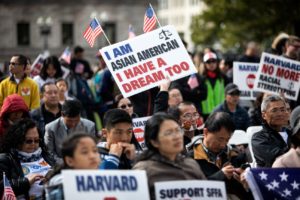
An article recently came out in Bloomberg News about former British Prime Minister Winston Churchill’s legacy in India and other colonized countries. Known as a great leader, orator, and realist, Churchill may very well pop up on your parents’ list of one of the great leaders of the 20th Century. After all, he defeated Nazism and saved Britain and the world from Adolf Hitler. An analysis of his speech might show a great and resolute leader, one who might be examined for a sense of leadership, if not moral resoluteness. As a high schooler, I remember learning about Churchill as someone to be examined for his foreign policy prowess.
This rosy, and ultimately whitewashed picture, however, hides a startling reality. Winston Churchill was involved with some of the greatest military campaigns in British history—and most of his campaigns constituted direct violations of human rights against Indians, Kenyans, and other peoples: “Churchill deliberately ordered the diversion of food from starving Indian civilians to well-supplied British soldiers and even to top up European stockpiles, meant for yet-to-be-liberated Greeks and Yugoslavs.“
One always has to remember that history is written from the perspective of the victor. An American high school student will read about American history, learn about American exceptionalism, the New Deal policies of President Franklin D. Roosevelt, President George W. Bush and President Barack Obama’s Wars in Afghanistan and Iraq, and maybe only somewhat about the caste system in India or Serbian nationalism that set off the Second World War for example. What this leaves out, however, was that many of our ‘great’ leaders, including Churchill, F.D.R., President John F. Kennedy, and Secretary of State Henry Kissinger (the architect of detente with the Soviet Union) portrayed a startling lack of compassion for colonized or embattled entities. Churchill starved and murdered many Indians. F.D.R. was hesitant to let in Jewish refugees during the Second World War. Kennedy’s belligerent and provocative attitudes towards Soviet Premier Nikita Khrushchev may have contributed towards the Cuban Missile Crisis.
When we look at world leaders, Western leaders are too often judged or remembered from a foreign policy perspective of grand strategy and leadership, but seldom are their human rights mishaps shed light upon. As Shashi Tharoor, the author of the Bloomberg article, writes: “to the descendants of the Iraqis whom Churchill gassed and the Greek protesters on the streets of Athens who were mowed down on his orders in 1944 (killing 28 and maiming 120), to sundry Pashtuns and Irish, to Afghans and Kenyans and Welsh miners as well as to Indians like myself, it will always be a mystery why a few bombastic speeches have been enough to wash the bloodstains off Churchill’s hands.”
Charles Moxley

Charles, a staff writer at “In the Zeitgeist”, is a senior at NYU majoring in Politics and minoring in French. Born and raised in New York City, Charles hopes to have a career in economics and management consulting. Charles has interned at a variety of outfits, including a New York-based securities law firm and the asset management company GAMCO Investors. Outside of school, Charles loves to run, travel, and debate foreign affairs with friends and family. Having studied abroad in Paris, France, Charles is fluent in French and Macedonian. He also enjoys learning new languages.



